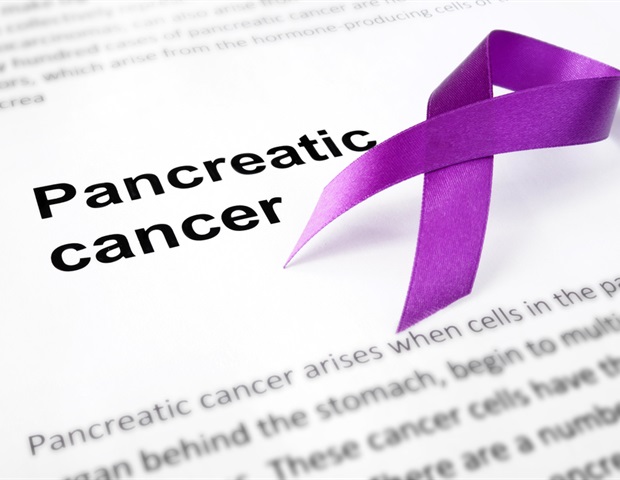
Researchers on the Garvan Institute of Medical Analysis have recognized a possible new therapeutic goal for pancreatic most cancers, one of the vital deadly most cancers varieties with restricted therapy choices. Revealed within the journal Science Advances, the research exhibits that blocking the molecule nidogen-2 enhanced the effectiveness of chemotherapy and lowered the most cancers’s unfold in mouse fashions.
The crew found that nidogen-2 reduces the dense scaffolding tissue inside pancreatic tumors, which is a significant barrier to therapy and contributes to the most cancers’s well-known chemotherapy resistance. “Our findings recommend that reducing nidogen-2 might enhance the way in which we deal with pancreatic most cancers and result in considerably much less metastasis – which is likely one of the important causes of demise in pancreatic most cancers,” says Dr Brooke Pereira, co-first and co-corresponding creator of the research and Senior Analysis Officer at Garvan.
Breaking down tumors to search out new targets
Pancreatic most cancers is an aggressive illness with a five-year survival charge of simply 12%, largely as a result of it’s usually identified at a complicated stage and might resist typical therapy choices.
To determine new therapeutic targets, the Garvan researchers used an progressive method known as tissue decellularization, which removes all of the cells from a tumor pattern, however retains its scaffolding elements, in any other case generally known as the extracellular matrix. By evaluating the scaffolds of mouse tumors that metastasize with people who do not, they found that the molecule nidogen-2 was elevated within the matrix of extra aggressive tumors because the illness progressed.
Utilizing CRISPR gene enhancing, the researchers then depleted nidogen-2 ranges in pancreatic tumors to look at its impact on the most cancers’s development and therapy response in mouse fashions in real-time, utilizing state-of-the-art intravital imaging at Garvan’s ACRF INCITe Centre.
“The outcomes have been placing. Once we lowered nidogen-2 in pancreatic tumors, we noticed a lower in matrix density, smaller tumors, and an enchancment in blood vessel construction,” says Dr Pereira. “tumors with much less nidogen-2 had blood vessels that have been extra open – they have been wider and extra evenly distributed in comparison with the collapsed and chaotic vessels often seen in pancreatic most cancers. This caught our consideration, since you want useful blood vessels to ship chemotherapy medication into the tumor successfully – it is one of many greatest challenges in treating pancreatic most cancers. By focusing on nidogen-2, we have been capable of normalise the tumor blood vessels.”
Enhancing chemotherapy and decreasing metastasis
When researchers administered chemotherapy of their fashions with lowered ranges of nidogen-2, they discovered that the therapy might extra successfully attain the entire tumor.
Nidogen-2 discount additionally led to considerably much less metastatic unfold to the liver in mouse fashions and improved survival in comparison with controls.
“This twin impact of enhancing chemotherapy whereas additionally decreasing metastasis is absolutely thrilling. It means that focusing on nidogen-2 could possibly be a promising new strategy for pancreatic most cancers,” says Affiliate Professor Thomas Cox, co-senior creator and head of the Matrix and Metastasis Lab at Garvan.
Our novel strategy – eradicating all of the cells from the tumor tissue to go away behind the scaffolding of the tumor – allowed us to determine molecules like nidogen-2 that weren’t beforehand on our radar. It is a highly effective method to uncover new medical targets within the tumor microenvironment – which for many years was ignored however we now know performs a vital function in most cancers development.”
Professor Paul Timpson, co-senior creator of the research and head of the Invasion and Metastasis Lab at Garvan
The researchers are actually engaged on creating medical approaches to focus on nidogen-2, comparable to blocking antibodies that bind to it, which could possibly be mixed with current chemotherapy regimens to permit the medication to higher penetrate the tumor and kill most cancers cells.
The researchers say that in future, this strategy can also be mixed with immunotherapy to additional enhance outcomes for pancreatic most cancers sufferers. “Pancreatic most cancers has seen minimal enchancment in survival for many years, so we urgently want new ways,” says Professor Timpson. “We imagine focusing on the tumor scaffolding via nidogen-2 could possibly be an important step ahead in bettering therapy of this aggressive illness.”
Supply:
Journal reference:
Pereira, B. A., et al. (2024). Temporally resolved proteomics identifies nidogen-2 as a cotarget in pancreatic most cancers that modulates fibrosis and remedy response. Science Advances. doi.org/10.1126/sciadv.adl1197.
